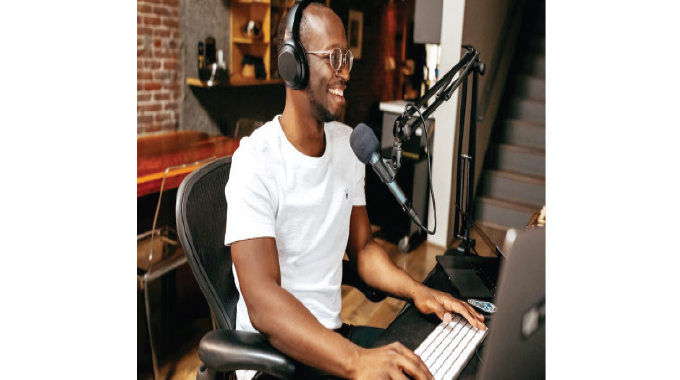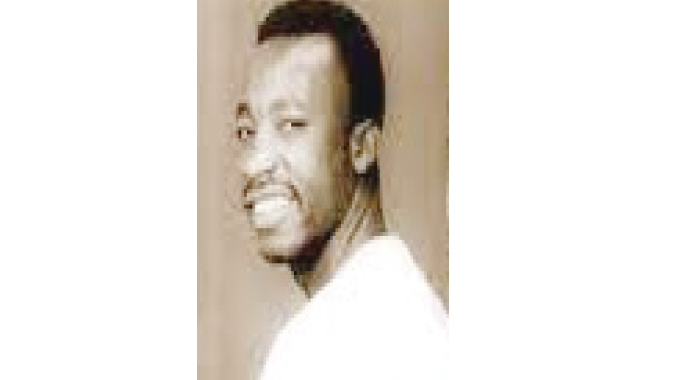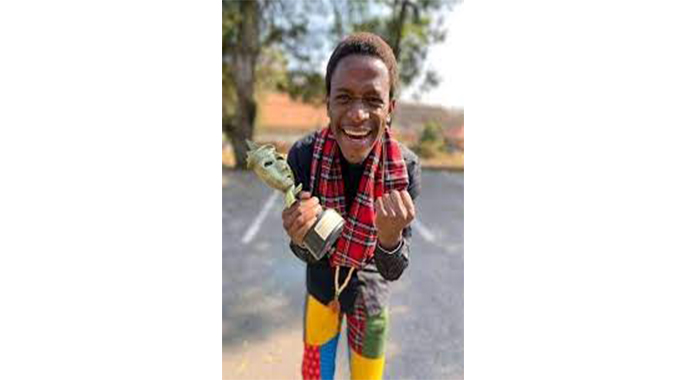Why your song does not get any airplay!

Mbulelo Mpofu, Online Reporter
ONE of the worst nightmares that artistes endure in the music business is among the following; being booed and choking on stage, producing a poor track or even worse, submitting your song and then not getting any airplay.
This can be frustrating and can leave one with more questions than answers.
Artistes and producers spend countless hours in the studio producing what they call “hits,” only for the hits to hit a massive brick wall when it comes to airplay.
It does not matter whether it’s commercial or non-commercial radio airplay.
Artistes value the spin, regardless of the financial gain that comes with it.
Be it original compositions or covers, some songs just don’t seem to get played on the radio.
Some of the most promising talents have suffered a stillbirth owing to frustrations attributed to failure of gaining that much-needed break.
Of course, the road to stardom is not a 100m sprint race (well, for most of us), but rather, a marathon that demands perseverance, hard work and most importantly, a stroke of luck (sometimes.)
When it comes to this type of predicament, upcoming artistes suffer the most.
An investigation on some of the artistes sired a somewhat mixed reaction as far as music submission is concerned.
Some struggled, yet some found it quite easy, for the benefit of those who needed clarity on what happens behind the scenes, a double portion awaits.
So, to get the monkey out of their (local upcoming artistes’) back, we had to summon people whose jobs was to receive submissions and compile playlists for radio stations in and around the Metropolitan Province of Bulawayo.
Is it a case of the recording, mixing, mastering and sound engineering of our music being substandard?
If not, why is it hard for upcoming musicians to break even and hit the airwaves?
All of the aforementioned questions were asked by Saturday Leisure.
The music submission process has been a challenge to artistes, especially given the prevalent Covid-19 conditions.
The physical submission was easy back then, one had to just pop into the radio station, and the receptionist would tell him/her where to submit the 3 Compact Discs (CDs) of their work.
Now, most, if not all the submissions happen virtually and there is a criterion that has to be followed.
Skyz Metro FM’s Executive Producer Possenti Sikosana was more than willing to shed light on what criteria an artiste has to meet for their songs to make the standard grade on the radio.
“Submitting music to the radio is quite simple. One has to email their music to [email protected] alongside the following information, album/single artwork, artiste’s profile, music genre, track listing, social media handles, and the correct format we accept is MP3. Without the meeting of the aforementioned criteria, it becomes hard, nearly impossible for us to play the music,” said Mr Sikosana.
The radio station is better known as Esabantu, which can be loosely translated to an all-inclusive station, yet it is not every artiste who will get airplay since “submission of music does not automatically guarantee it will be played.”
Chief among the factors that define artistes shooting themselves in the foot happens to be their lyrical content. Some songs are just too lyrically questionable. This is not just a local, but global problem.
Getting airplay is not always black and white, but many factors come into play. Some get airplay, but eventually fall from grace. Take for example controversial artistes like Lady Gaga (real name Stefani Joanne Angelina Germanotta) who thrive on controversy.
The lyrical content entailed in her song titled Judas created a religious bedlam and in Lebanon, officials unfortunately agreed with Lady Gaga’s claim, in her single — released on Easter, no less — that “in the most Biblical sense / I am beyond repentance”. It was banned from radio.
In Zimbabwe, Lady Gaga’s equal is award-winning rapper/musician Alishious Musimbe also known as Maskiri.
This fellow has perennially been a controversial figure with songs like Dhara Rangu and most recently, Mbinga from Binga not helping his case. Also, his album Blue Movie left a bad taste on many people’s mouths.
Such a reputation may have a bearing on an artiste’s airplay.
The title of the album itself is “questionable.” It creates an unfathomable mental abomination.
Listening to the song, Mbinga from Binga, Maskiri, at between 0:10 to 0:13 seconds sings, Handina musoro kunge Tapiwa Makore (I do not have a head like Tapiwa Makore), which was in reference to the brutally murdered Murewa boy, Tapiwa Makore and this did not sit well with most people.
Maskiri has carved a niche in the hip-hop circles, there is no doubt he is one of the kings, but his Achilles heel will always be his controversial lyrics.
Because of his “controversial” self, his messages tend to get lost in translation and such lyrics either make or break an artiste. Maskiri is just another fish in the sea in that respect. There are many artistes that have been slain in the court of public opinion because of their reputation.
But that is not the only reason an artiste can fail to make it on the radio, as the Skyz Metro FM’s Executive Producer said — failure to submit artiste discography/biography can undo an artiste.
Why should artistes submit their discography/profile or electronic press kit (EPK)as well? It is important for musicians to provide a profile about themselves as it helps radio DJs and presenters to have a clear and picture-perfect idea of who the artiste is and what they are all about.
“Unfortunately, most submissions do not have all the above requirements. We hardly get artiste profiles. With no profiles submitted you then go online and find nothing, making it hard to talk about the artiste,” said Sikosana.
Esabantu’s poster on music submission expressly states that lyrically, there should be “no explicit” content. This is not just an isolated case as this (no explicit content) also applies to all other radio stations.
Most of the artistes will attest to using or at least, being tempted to use the “Parental Advisory/Explicit Content” sticker on their CD art covers. It looks cool and seems to conform to trends, right?
Here is the stinker, such lyrical content is prone to judgment and scrutiny. The more the songs are criticised based on their lyrical content, the less the chances of them being played on the radio.
Not only does it affect airplay, it also jeopardises the artiste’s chances of financial gain on virtual music stores.
In some countries, the marking of songs as explicit also affects the visibility of the release in the Apple Music/iTunes stores. In Belarus, Burkina Faso, India, Nepal, and Uzbekistan, Apple Music/iTunes won’t display the release of such songs.
It is good to conscientise your fans about the type of content contained in your songs but to what end if you won’t get the much-needed airplay?
Explicit lyrics are those that contain strong language and swearing. I know artistes know what I’m referring to.
Sometimes, music does not feature on the playlist because of such strong language. Also, references to violence, sex or drugs in the lyrics or displayed on the cover art can be problematic and cast the wrong spotlight on any artiste.
You cannot seriously use discriminatory language in your songs and expect airplay. Yes, it might be a powerful “bar” but in your quest to raise the bar, you might spell your demise. Your bars should be within the confines of socially-acceptable wording. Radio stations require clean lyrics that are radio-friendly.
When your song does not get airplay, you are prone to blame everyone but yourself. If it is not the producer’s fault, then most probably, radio presenters are “sabotaging” you. But you forget that as mentioned above — submission of music does not automatically guarantee it will be played.
Radio stations have librarians whose job is to sift grain from chaff.
“Music goes through a listening process. The music committee sits down and reviews all submitted music with approved songs going into the week’s rotation system. Selected songs have to be properly mastered with perfect alignment of vocals and instrumental,” said Mr Sikosana.
Khulumani FM’s librarian, Allen Gandiwa attests to the radio station’s readiness to not only to receive, but play local music.
“We are more than ready to play local artistes and I would like to advise them to keep their music free from vulgar, obscenities and hate language. That way, it becomes easy for us to play their music on daytime radio,” he said.
Sometimes, lyrics may be clean as a nurse, the beat be groovy as it can be, but then, the vocal clarity and delivery will be “whack.” Discord is counter-productive.
This will render the whole production a somewhat substandard project and in the challenging and competitive world of music, second best won’t cut it. Music producers and radio presenters may do just as much. The artiste has the lion’s share in making their project radio-friendly and successful.
Another element that musicians must take note of is the fact that radio stations receive quite a huge number of submissions and your song might take time to get played.
It is against this background that soon, Skyz Metro FM will launch an interactive workshop with people involved in the music business to have an appreciation on how to better manage their music.
“As part of our 5th year anniversary celebrations, we want to do an interactive workshop aimed at equipping artistes with relevant knowledge of the music business,” said Sikosana.
This will be imperative, especially for artistes because if these blizzards of “requirements” are not looked at thoroughly, then, airplay might become an artiste’s holy grail.
To all artistes, not getting airplay does not necessarily mean that you are a bad artiste, so, instead of crying yourself to sleep, playing the blame game and having a pity party, just keep on working hard and trying again. — @eMKlass_49











Comments